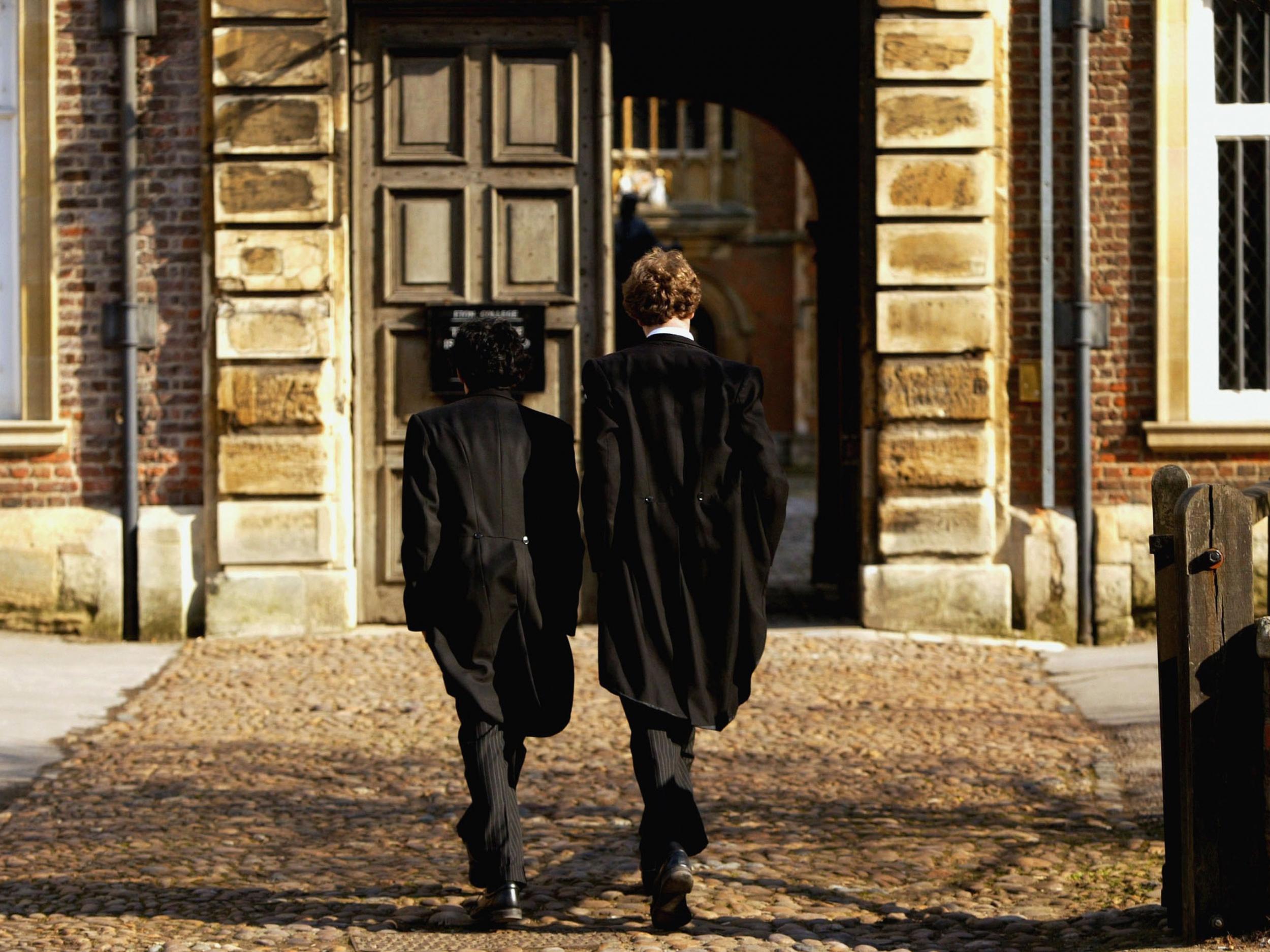Eton apologises to first ever black pupil who was banned after calling out racism
Dillibe Onyeama wrote book detailing how fellow students would ask him ‘Why are you black?’, ‘How many maggots are there in your hair?’ and ‘Does your mother wear a bone in her nose?’

The headmaster of Eton College has apologised to its first ever black student to graduate after it emerged he had been banned from going back for almost 50 years because he wrote a book detailing his experience of racism there.
Simon Henderson said Dillibe Onyeama, who was a pupil at the exclusive private school in the 1960s, was now welcome to visit any time.
The ban was initiated in 1972 after the Nigerian writer published a memoir about the daily discrimination he faced while a student.
It came to light again this week amid ongoing discussions surrounding institutional racism in British society sparked by a wave of Black Lives Matters protests.
Mr Henderson, who has been headmaster at the £40,000-a-year school since 2015, said: “We have made significant strides since Onyeama was at Eton but – as millions of people around the world rightly raise their voices in protest against racial discrimination and inequality – we have to have the institutional and personal humility to acknowledge that we still have more to do.”
He told the BBC he would now invite the former pupil to the school in order to apologise and “to make it clear that he will always be welcome at Eton”.
In response Mr Onyeama said he would be willing to accept the apology in person – provided his air fare is covered, The Guardian reported.
“My attitude is that it is not necessary. It was neither solicited nor expected, it was not fought for. There’s no obligation on the part of Eton college to apologise for anything. So really, to me, it is a non-issue”, he added.
In his book – written when he was just 21 – Mr Onyeama claimed his time at the Berkshire school saw him repeatedly asked questions such as “Why are you black?”, “How many maggots are there in your hair?” and “Does your mother wear a bone in her nose?”
When he achieved good academic results, he wrote, he was questioned over cheating.
He received an official letter shortly after the memoir was published in 1972 informing him that, as a result of its contents, he was banned from visiting Eton – an exclusive school where 20 British prime ministers, including Boris Johnson, have been educated.
Mr Onyeama told the BBC he had not been looking for an apology and it did not change his view of Eton, which was largely positive.
But, he added, the apology “compels the recognition that prejudice on the grounds of colour or race dehumanises its victims in a way that ordinary forms of prejudice do not”.
The exchange came as figures show the UK’s most exclusive educational institutions still have some considerable way to go to tackle inherent racism.
New data shows the number of black students attending the University of Oxford has increased – but that fewer than five black undergraduates have been recruited in 12 of its 45 colleges over the last three years.
The proportion of British students with Black African or Black Caribbean heritage admitted last year increased from 2.6 per cent to 3.2 per cent but the figures at some colleges and on some courses remained disproportionately low.
Subscribe to Independent Premium to bookmark this article
Want to bookmark your favourite articles and stories to read or reference later? Start your Independent Premium subscription today.
Join our commenting forum
Join thought-provoking conversations, follow other Independent readers and see their replies